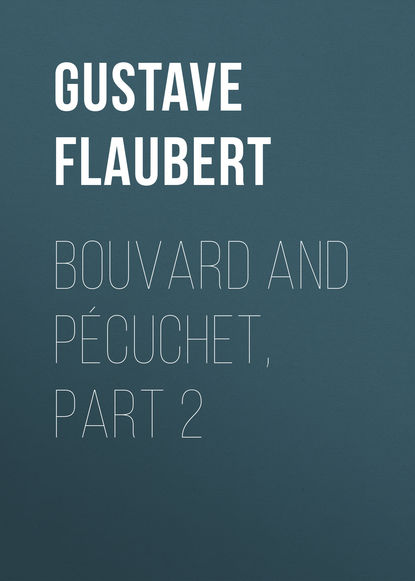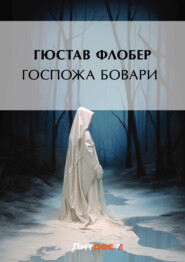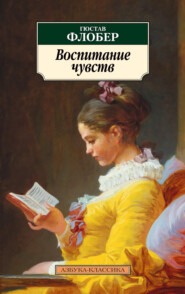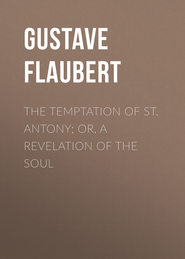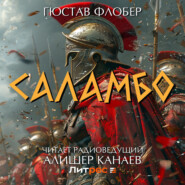По всем вопросам обращайтесь на: info@litportal.ru
(©) 2003-2024.
✖
Bouvard and Pécuchet, part 2
Настройки чтения
Размер шрифта
Высота строк
Поля
In order to avoid his discourses they used to come to the château at as late an hour as possible.
One day, however, they encountered him there. He had been an hour awaiting his two pupils. Suddenly Madame de Noares entered.
“The little girl has disappeared. I am bringing Victor in. Ah! the wretch!”
She had found in his pocket a silver thimble which she had lost three days ago. Then, stifled with sobs:
“That is not all! While I was giving him a scolding, he turned his back on me!”
And, ere the count and countess could have said a word:
“However, it is my own fault: pardon me!”
She had concealed from them the fact that the two orphans were the children of Touache, who was now in prison.
What was to be done?
If the count sent them away they would be lost, and his act of charity would be taken for a caprice.
M. Jeufroy was not surprised. Since man is corrupt, our natural duty is to punish him in order to improve him.
Bouvard protested. Leniency was better. But the count once more expatiated on the iron hand indispensable for children as well as for the people. These two children were full of vices – the little girl was untruthful, the boy brutish. This theft, after all, might have been excused, the impertinence never. Education should be the school of respect.
Therefore Sorel, the gamekeeper, would immediately administer to the youngster a good flogging.
M. de Mahurot, who had something to say to him, undertook the commission. He went to the anteroom for a gun, and called Victor, who had remained in the centre of the courtyard with downcast head.
“Follow me,” said the baron. As the way to the gamekeeper’s lodge turned off a little from Chavignolles, M. Jeufroy, Bouvard, and Pécuchet accompanied him.
At a hundred paces from the château, he begged them not to speak any more while he was walking along the wood.
The ground sloped down to the river’s edge, where rose great blocks of stone. At sunset they looked like slabs of gold. On the opposite side the green hillocks were wrapped in shadow. A keen wind was blowing. Rabbits came out of their burrows, and began browsing on the grass.
A shot went off; a second; a third: and the rabbits jumped up, then rolled over. Victor flung himself on them to seize hold of them, and panted, soaking with perspiration.
“You have your clothes in nice condition!” said the baron.
There was blood on his ragged blouse.
Bouvard shrank from the sight of blood. He would not admit that it ever should be shed.
M. Jeufroy returned:
“Circumstances sometimes make it necessary. If the guilty person does not give his own, there is need of another’s – a truth which the Redemption teaches us.”
According to Bouvard, it had been of hardly any use, since nearly all mankind would be damned, in spite of the sacrifice of Our Lord.
“But every day He renews it in the Eucharist.”
“And whatever be the unworthiness of the priest,” said Pécuchet, “the miracle takes place at the words.”
“There is the mystery, sir.”
Meanwhile Victor had riveted his eyes on the gun, and he even tried to touch it.
“Down with your paws!” And M. de Mahurot took a long path through the wood.
The clergyman had placed Pécuchet on one side of him and Bouvard at the other, and said to the latter:
“Attention, you know. Debetur pueris.”
Bouvard assured him that he humbled himself in the presence of the Creator, but was indignant at their having made Him a man. We fear His vengeance; we work for His glory. He has every virtue: an arm, an eye, a policy, a habitation.
“ ‘Our Father, who art in heaven,’ what does that mean?”
And Pécuchet added: “The universe has become enlarged; the earth is no longer its central point. It revolves amongst an infinite multitude of other worlds. Many of them surpass it in grandeur, and this belittlement of our globe shows a more sublime ideal of God.
“So, then, religion must change. Paradise is something infantile, with its blessed always in a state of contemplation, always chanting hymns, and looking from on high at the tortures of the damned. When one reflects that Christianity had for its basis an apple!”
The curé was annoyed. “Deny revelation; that would be simpler.”
“How do you make out that God spoke?” said Bouvard.
“Prove that he did not speak!” said M. Jeufroy.
“Once again, who affirms it?”
“The Church.”
“Nice testimony!”
This discussion bored M. de Mahurot, and, as he walked along: “Pray listen to the curé. He knows more than you.”
Bouvard and Pécuchet made signs to indicate that they were taking another road; then, at Croix-Verte:
“A very good evening.”
“Your servant,” said the baron.
All this would be told to M. de Faverges, and perhaps a rupture would result. So much the worse. They felt that they were despised by those people of rank. They were never asked to dinner, and they were tired of Madame de Noares, with her continual remonstrances.
They could not, however, keep the De Maistre; and a fortnight after they returned to the château, not expecting to be welcomed, but they were. All the family were in the boudoir, and amongst those present were Hurel and, strangely enough, Foureau.
Correction had failed to correct Victor. He refused to learn his catechism; and Victorine gave utterance to vulgar words. In short, the boy should go to a reformatory, and the girl to a nunnery. Foureau was charged with carrying out the measure, and he was about to go when the countess called him back.
They were waiting for M. Jeufroy to fix the date of the marriage, which was to take place at the
mayor’s office before being celebrated in the church, in order to show that they looked on civil marriage with contempt.





